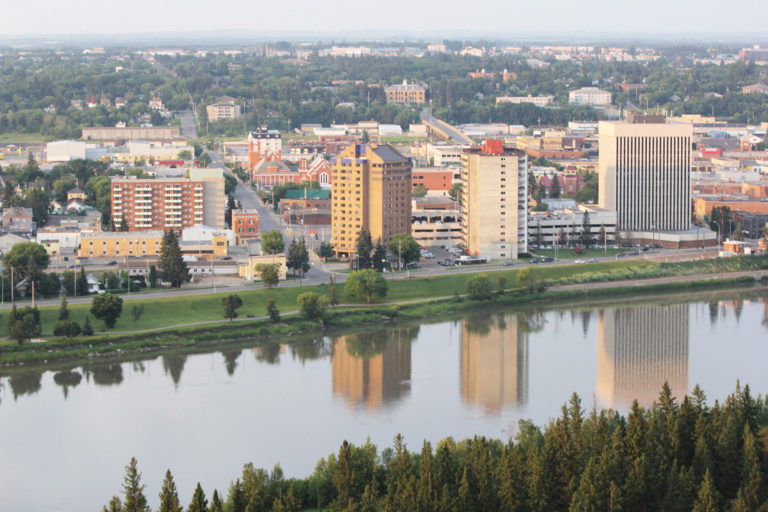
The City of Prince Albert will receive nearly $2.3-million as part of the federal government’s Safe Restart Canada Plan announced earlier this year.
A total of $141,453 will go towards city transit, while the remaining $2,143,130 is for general allocation. Mayor Greg Dionne said the news came as a welcome relief, since the City expects to run a deficit of somewhere between $750,000 and $900,000 for 2020.
“That’s a big bonus for us, because COVID-19 is still going to be here in January, so we’re already going to be ahead of the scale, with money in the bank for things that we can operate,” Dionne said on Thursday. “It does certainly take a big burden off us.”
Dionne said he’d prefer to see the extra money spent on infrastructure projects, like a new secondary sewage treatment plant. The City has already applied for federal and provincial help in covering the $44-million cost, and Dionne said they’ll apply for more grants in the future.
“It’s an ongoing challenge, but the biggest focus has to be on infrastructure,” Dionne said. “That would be our biggest need.”
City administration will begin work on the 2021 budget immediately, but Dionne said the current council plans to leave it up to the next one to determine where the money should go.
The 2016 election saw the election of five new councillors, who then had no input over the 2017 budget, which was already passed. Dionne said they want to avoid having that happen again. He also said the election campaign will give residents a chance to give their input about where the money should go.
Dionne added that the City originally hoped for around $2-million in funding, so they were pleased to receive a little bit more. The $141,453 for transit pales in comparison to the $4.3-million received by Saskatoon and $3.4-million received by Regina. However, Dionne said they based those funding portions on ridership numbers, so he wasn’t surprised by them.
Although he was grateful for the support, this likely won’t be the last time the federal or provincial governments have to support their municipal counterparts. If COVID lasts into next summer, Dionne said they’ll have to ask for another round of financial aid, even if the construction of major infrastructure projects like the new hospital and new arenas and aquatics facility continues as scheduled.
“Both levels of government understand that we will need assistance again,” Dionne explained. “That’s why they have stated that it might be a couple of years of deficit budgeting so they can meet the demands that are put on them from the municipalities.”
Dionne thanked both the provincial and federal government for digging deep into their pockets to help out Saskatchewan communities, a move which will put both levels of government further into debt. In July, the provincial government forecasted a record deficit of $2.4-billion for 2020-21, while the federal government expects the deficit to hit at least $343-billion.
Saskatchewan municipal governments will receive a combined $70-million in funding as part of the restart plan. The list of recipients includes 16 cities, 147 towns, 250 villages, 41 resort villages, 296 rural municipalities and 24 northern communities, along with the Flin Flon Boundary Area and Northern Saskatchewan Administration District.
The provincial government matched the federal contribution with $150-million in funding previously announced as part of the Municipal Economic Enhancement Program (MEEP).
“As Saskatchewan returns to a new normal, this is another important investment to help municipalities and their residents weather the storm,” provincial Government Relations Minister Lori Carr said in a press release. “This funding will support efforts to protect health and safety, prepare for potential future waves of COVID-19, and facilitate the safe re-opening of economies.”
Carr and a number of provincial ministers held weekly conference calls with the mayors of Saskatchewan’s 16 largest cities. Mayors were allowed to submit any questions they had about the COVID-19 outbreak.
